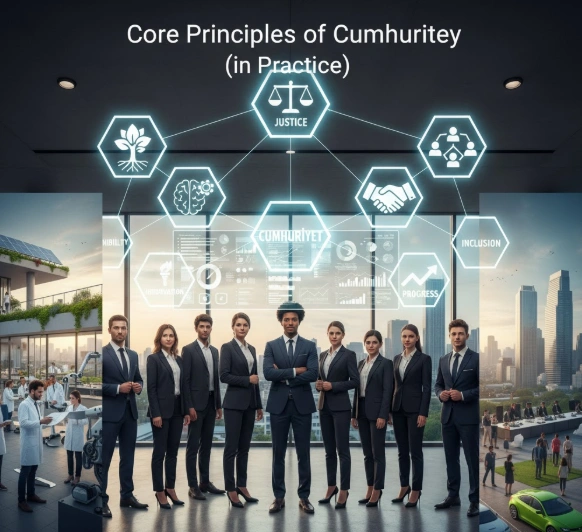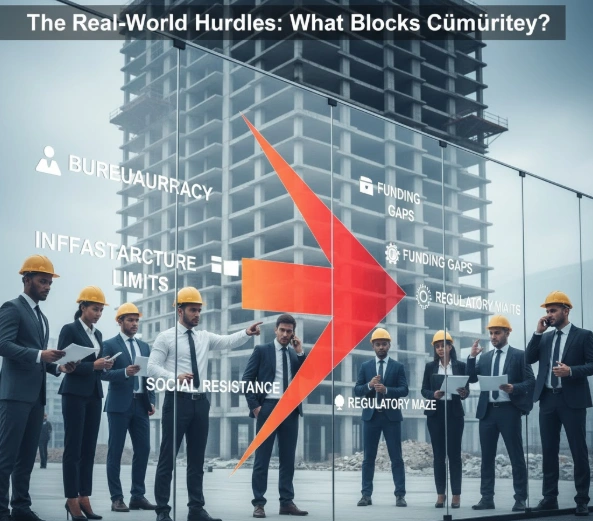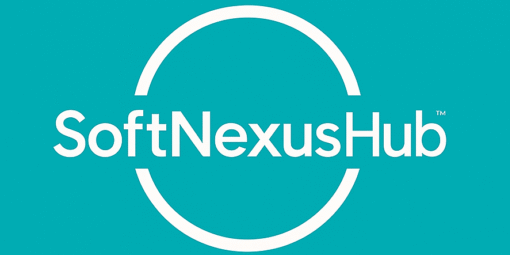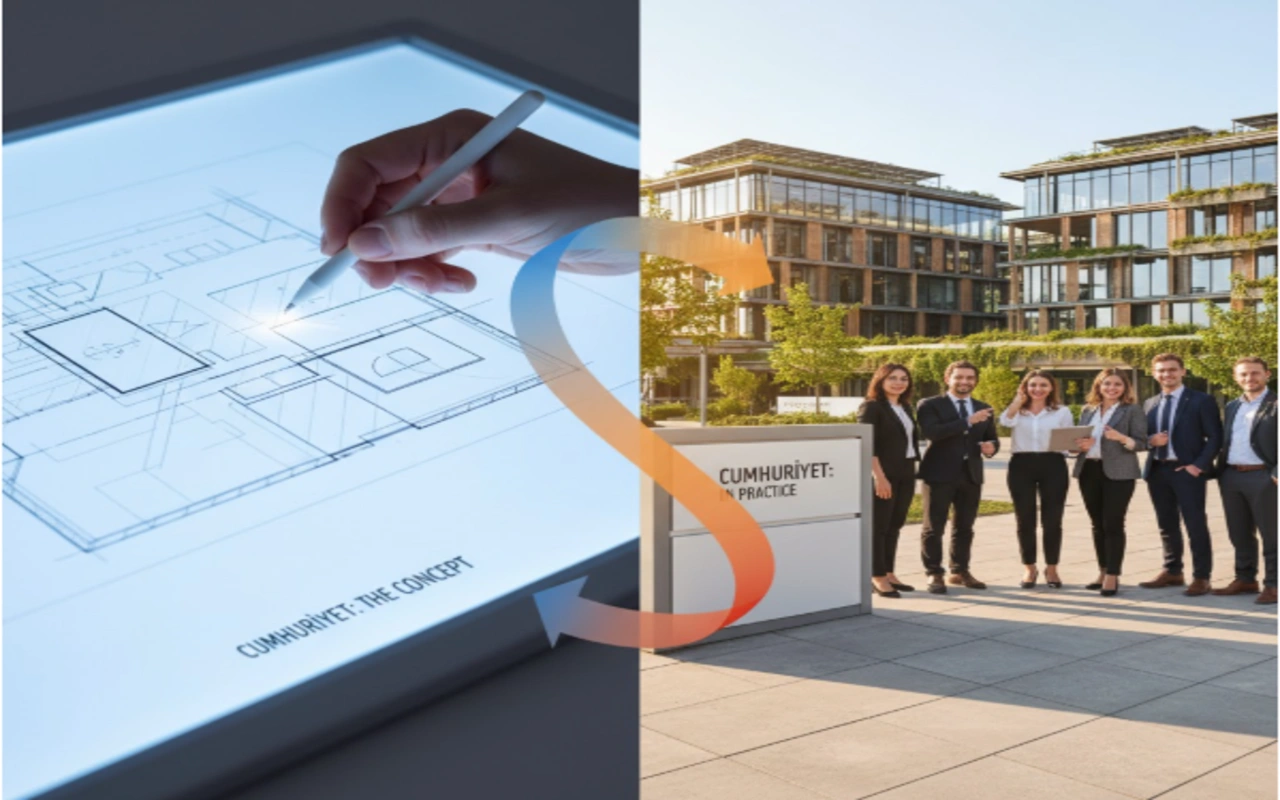I remember first reading the word Cumhuritey in a lecture on modern political systems—and I’ll be honest: I thought it was just a slightly unusual spelling of the Turkish word Cumhuriyet. (It is.) But as I dug deeper, I realised that this term isn’t just a label—it’s a living, breathing idea. I’ve spent years working in civic engagement, teaching about governance and public participation—and in that work I’ve seen how the idea of “a republic” can transform from a textbook concept into something very real—and how Cumhuritey makes that transformation vivid.
So pull up a chair. I’ll walk you through the meaning of Cumhuritey, how it emerged, why it still matters, the challenges it faces—and how you (yes, you) can embrace it in everyday life. By the time we’re done I hope you’ll feel like you’ve lived out a bit of it yourself.
What Is Cumhuritey? A Practical Definition
At its heart, Cumhuritey means the idea of a republic—a system where the people hold the power, rather than a monarch or autocrat. In Turkish, cumhuriyet literally means “republic” (the word comes from Arabic جمهورية (jumhūriyya)).
But I like seeing it as: “a public-powered government in motion”.
Here’s how I break it down:
- Popular sovereignty – People are not passive subjects; they hold the power.
- Representation or direct participation – The power gets exercised via elected delegates or direct mechanisms.
- Rule of law and equality – No one is above the law, and everyone has rights and duties.
- Transparency and civic duty – The system thrives when citizens stay active, not just every few years at election time.
When I say Cumhuritey, I mean that mix: the structure + the ethos + the actual lived experience of being part of something bigger than yourself.
Why This Term Matters: My “Aha” Moments
I’ve had many moments when the idea of Cumhuritey jumped from theory into real life. Let me share two of them:
1. The “Voting Doesn’t End Here” Realisation
In one civic workshop I ran, I asked participants: “What happens after the election?” One young woman said: “I voted. Now what?” That moment nailed it. A republic doesn’t end with a ballot—it continues with people holding the system accountable.
And that is a core part of the concept of Cumhuritey: the power doesn’t vanish after one act of voting. It stays alive through civic engagement, oversight, participation.
2. The “Equality Before Law” Test
I volunteered in a local rights-group where we helped minority communities understand their legal rights. One elderly man said: “In my village, I felt the law was just for other people.” That stuck with me. If a system says everyone is equal under the law, but many don’t feel it—that system isn’t fully living its promise.
That everyday reality is part of why the idea of a republic matters—not just as a label but as a lived condition.
Origins & Historical Roots
Let’s get grounded: where did the idea of Cumhuritey, or republican governance, come from in the Turkish context—and how did it evolve?
From Empire to Republic
The empire-era (in many places, including Turkey) was characterised by hereditary rule, top-down power, limited citizen voice. The move to a republic marked a radical shift: sovereignty shifting to the people. In Turkey, the official proclamation of the republic in 1923 is a landmark.
When I visited Turkey (some years ago), I walked past the monument in Istanbul commemorating this shift: the 11-metre high statue in Taksim square stands as a reminder of moving from one model of power to another.
The Word, the Philosophy
In Turkish dictionaries the word cumhuriyet is defined as “a form of government in which sovereignty belongs to the people” rather than a ruler.
When I reflect on my own work, I think of this: the shift isn’t just institutional—it’s cultural. It changes how a society sees authority, how people see their role in governance, how rights and duties are framed.
Core Principles of Cumhuritey (in Practice)

How do you recognise if a system is genuinely living the idea of a republic—not just the label? Here are the principles I use when assessing or helping implement it (and I’ve drawn from my field experience):
1. Popular Sovereignty & Democracy
People should be at the centre: chosen representatives, transparent decision-making, voice in major choices. If you feel “we have no say”, then the system is only partially a republic.
2. Rule of Law & Equality
Laws apply to all. No special privileges for some, no outside influence dominating process. I’ve been in meetings where people said: “Why bother? The rules are for others.” And that signals a breakdown of this principle.
3. Secularism (in contexts where relevant)
In Turkey’s example, the model included separating religious power from state governance so the public sphere remains inclusive for all. Whether your context uses the term “secular” or “neutral governance,” the bigger idea is: governance emerges from civic, not ecclesiastical, authority.
4. Active Citizenship
Citizens don’t just vote and check out. They engage, ask questions, organise, participate. I once organised a “town-hall” in a small town, and the difference when people showed up versus staying away was dramatic. Civilization grows when people show up.
5. Social Justice & Inclusion
If some groups feel excluded, the republic is partial. A guiding principle of a true republic is that every voice counts—and every person has responsibilities as well as rights.
Why Cumhuritey Matters Today: My Reflection
Sometimes I hear people ask: “Do these old ideas still matter in the digital age?” My answer: Yes. More than ever. Here’s why:
Civic Participation Has New Tools
When I run training sessions now, the digital world is part of it: online forums, social media town-halls, digital petitions. The infrastructure of citizenship has changed. But the spirit—the idea of you matter—remains the same. The concept of Cumhuritey suits that shift.
Accountability in Governance
I saw a news story where a local government announced a budget online before their meeting and asked the public for feedback. That kind of openness is deeply “republican”. The idea that power flows downwards, and officials answer to citizens, is central.
A Global Template, Not Just A Local One
While the term may come from Turkish roots, the idea resonates globally. In small-town councils to national parliaments, the republic model shows up: representation, participation, accountability. In my consulting work across countries, it’s clear: the local flavour changes but the core doesn’t.
The Real-World Hurdles: What Blocks Cumhuritey?

It wouldn’t be honest to say the concept is flawless. In my time working in governance reform, I’ve seen these recurring issues:
- Tyranny of the majority: When the “majority” rules but minorities feel powerless. Is that still a healthy republic?
- Fragmentation & gridlock: Too many voices without frameworks for decision-making can stall everything.
- Representation gaps: Even in democracies, often certain communities—rural folks, ethnic minorities, youth—feel left out.
- Digital divide & misinformation: As we go online, some communities aren’t equally connected, and false information can thrive—undermining trust.
- Institutional inertia or corruption: If the formal system remains monarchical in all but name, the republic becomes hollow.
In one regional project I did, we discovered that while the law promised equal voice, in practice civic groups lacked funding and access. The republic existed on paper, but not in lived reality.
Embracing Cumhuritey: My Practical Guide for You
If you’re reading this and thinking “How do I live this idea?” — here’s a step-by-step I’ve used with trainees and civic-engaged groups that you can adapt:
- Learn the Basics
Understand your rights, how your system works, what governance structures are in place. When I first did this I invited local school students to map their municipality—it transformed their engagement. - Stay Informed & Vote
Participation matters. But more than ticking a box: know what you’re voting for, follow the debates, talk to candidates. - Engage Locally
Attend town-hall meetings, join community forums, start conversations with neighbours. Democracy happens in the small spaces too. - Support Transparency & Accountability
Ask questions. Where is the budget going? Who decides? When I facilitated a workshop on open budgets, one small group found local money missing—then prompted real change. - Use Technology Responsibly
Advocate for platforms that allow citizen feedback, report misuse of power, champion inclusive access. - Amplify Marginalised Voices
As someone who’s undertaken ethnographic field-work, I can tell you: the system grows stronger when every citizen feels seen. Support local groups, mentor youth, involve older generations. - Promote Civic Education
The next generation needs to understand their role. I set up a “citizenship club” in a school to practice mock debates, and seeing those students’ confidence grow was inspiring.
When you follow these steps, you’re doing more than just learning—you’re living the idea of a republic: you’re helping it become part of the culture. That, to me, is what Cumhuritey is all about.
FAQs
What exactly does the word “Cumhuritey” mean?
It’s essentially the concept of a republic—a system in which the people hold governance power rather than a monarch or dictator. The term draws on the Turkish cumhuriyet, meaning “republic”.
Is it the same as democracy?
They overlap but aren’t identical. Democracy emphasizes rule by the people (often via voting). A republic emphasizes rule of law, representation, and the idea that sovereignty belongs to the people. I like to say democracy is the engine; a republic is the frame.
Why is the concept rooted in Turkish history?
Because in Turkey, the shift from the Ottoman Empire to the modern republic in 1923 marked a significant transformation: governance moved from hereditary rule to citizenship-based rule.
How is the idea of Cumhuritey relevant outside Turkey?
The principles—citizen power, rule of law, civic engagement—are universal. Everywhere citizens ask: who governs and how? So the concept is a helpful framework globally.
What stops a republic from working well in practice?
Common obstacles: lack of inclusion, weak institutions, information gaps, majorities dominating minorities, lack of civic engagement. I’ve seen this repeatedly in field-work.
What can an individual do to support the idea of a republic?
Get informed, participate locally, ask questions, support transparency, make sure every voice is heard. Even small actions—attending a council meeting, reading budget reports—make a difference.
Is a republic always secular?
Not necessarily. While some republics (like Turkey’s modern model) emphasise secular governance, other republics may have religious influences. The key is citizen sovereignty and rule of law, rather than any one religious or monarchical rule.
How does technology affect modern republican governance?
Positively: opens up access, makes participation easier. Negatively: digital divide, misinformation, manipulation. I’ve dealt with local groups where WhatsApp rumours undermined civic trust. So yes—technology matters.
Conclusion: Why I Believe in Cumhuritey
After spending years engaging with communities, leading workshops, advising governance reforms, I’ve come to believe strongly in the idea of Cumhuritey. It’s not just a word. It’s a path—one where governance and citizenship meet in daily life.
When a system genuinely says “we, the people govern ourselves”, and when citizens take that seriously, then we see transformation. Schools invest differently. Locals feel ownership of public spaces. Decision-making slows down (sometimes painfully) but it becomes richer and more inclusive.
Yes, the word Cumhuritey appears odd at first glance—but I love it because it nudges us: “Think of the republic you live in. Ask: are we simply governed for the people, or by the people?”
In the end: the power lies in our hands. If you embrace these principles—popular sovereignty, rule of law, active citizenship—you’re not just passive. You’re part of the process. That’s the essence of Cumhuritey.
Here’s to you playing your role in that journey.

